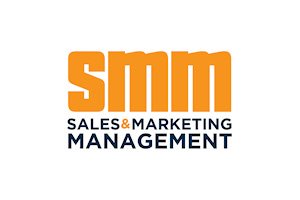Artificial intelligence — AI for short — is already changing the world in countless ways. Millions of people use devices like Amazon Echo and Google Home to find out more about products and services they need or to control their home environment. Virtually all automakers are exploring self-driving car technology. Retailers are seriously considering plans for delivery drones.
AI has transformed the way businesses and health services operate in a short timeframe. It helps farmers safeguard crops from disease. AI can diagnose diseases faster than human doctors. It helps supply chains run more efficiently. But for business, AI is having an early transformative effect on sales and marketing by helping people make better decisions and serve customers more effectively.
So, what is AI? At its most basic level, AI is the branch of computer science that deals with making computers behave like humans. Audio processing and computer vision allows AI to sense. Natural language processing and knowledge representation allow it to comprehend. Machine learning and an expert recommendation system allow it to act and learn.
Why AI Is Poised to Transform Sales
The sales function is uniquely well-suited to be transformed by AI tools. One factor is the availability of data and the evolution of technologies that make it easier to harmonize information and deliver insight. CRM data is typically underused, but now it’s possible to integrate CRM data with other internal data sources and even unstructured data for analysis.
Sophisticated data analytics can spot hidden behaviors, triggers and patterns that salespeople can’t perceive on their own. AI is already changing the way sales operates and will continue to transform the sales function in three important ways:
- Efficiency: AI-driven process automation enables automatic and intelligent data capture, freeing salespeople from mundane tasks like entering activities into the CRM system. AI can schedule calls and meetings, generate meeting notes and outline action steps.
- Effectiveness: AI-driven sales guidance can proactively identify and prioritize new opportunities. It can improve effectiveness by suggesting an optimal path to deal closure, and it can provide detailed guidance for approaching each prospect.
- Enhancement: The most sophisticated AI applications will be able to provide conversation guidance, recording, transcribing and analyzing conversations. It will be able to provide insight about what techniques work in a meeting or demo and tailor pitches for every opportunity.
Some of these capabilities are already available and others are under development. But research and case studies confirm AI’s capacity to drive transformative change in the sales function. A Harvard Business Review study found that a science-based approach to salesforce effectiveness can drive a 200 percent increase in productivity among sales reps performing in the bottom quartiles and elevate the average sales rate per rep by 50 percent. Using AI and CRM can also cut costs by up to 60 percent.
In one case study, a sales group tested an AI-driven sales technology that recommended accounts, contacts and opportunities to pursue, products to focus on during sales calls and messages tailored to buyers. Over the course of a seven-week A/B test scenario, overall sales increased 4 percent, which extrapolates to a $154 million annual impact in the company that conducted the test.
How AI Will Change Salespeople’s Lives
As AI-driven sales technology evolves, it will not only transform the sales function, it will change the lives of salespeople. In the future, sales professionals will wake up to a system that informs them of their scheduled meetings and targets for the day, providing a curated news feed that can assist them in their work and a recommended time to leave home.
As they drive to a meeting, an AI sales assistant will provide directions and deliver news that is relevant to the meeting. AI will also provide reminders about important information, such as product recommendations, profile details of the key people the sales professional will be meeting, key contacts’ likes and dislikes and what messages will resonate with the group.
During the meeting, the AI-driven sales assistant will record the conversation and create notes, capturing takeaways, identifying next steps and updating the CRM system. At the office after the meeting, the AI sales assistant will provide support on action items, creating personalized email drafts, schedule future meetings and provide automated feedback on progress.
And AI will keep working while the sales professional sleeps, analyzing the day’s results, prioritizing future meetings and identifying and sharing what it has learned from the salesperson’s and other’s activities. Since AI never sleeps, it can keep contributing value around the clock, using machine learning to improve and offer better guidance.
Some of the technologies described here are already in widespread use. Others are making inroads with companies that are early adopters. And some are now under development. But one thing is clear: AI is the future of sales, and because of its capacity to improve over time, the companies that give their sales teams AI tools first will have a huge head start over competitors.
Anil Kaul, CEO of Absolutdata, has more than 22 years of experience in advanced analytics, market research, and management consulting. He is passionate about analytics and leveraging technology to improve business decision-making.
























